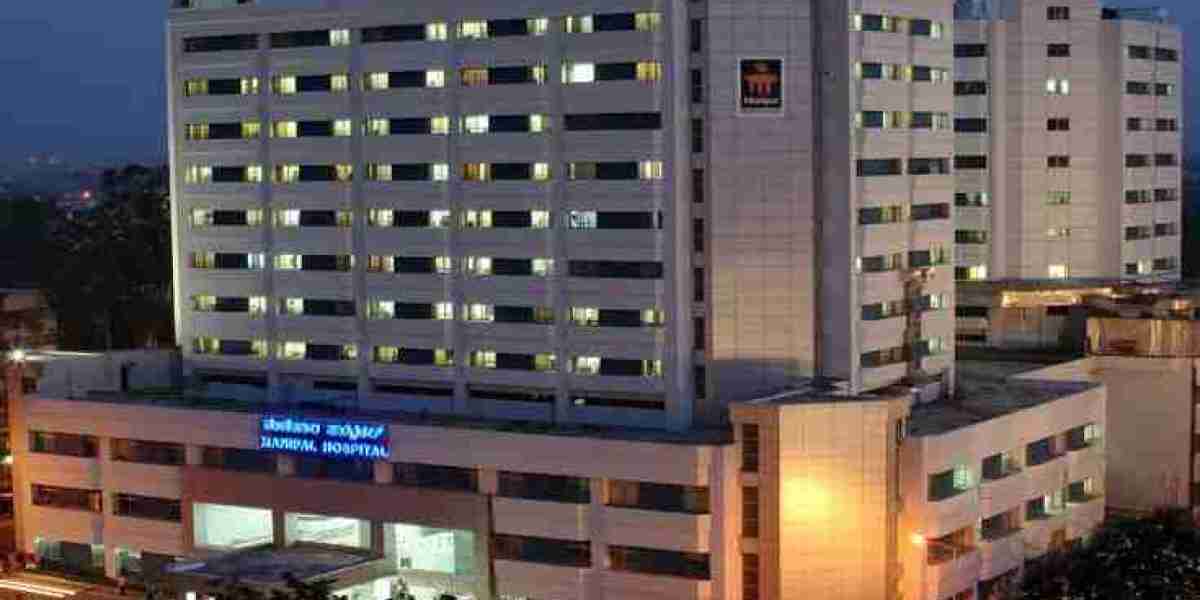Every birth is a unique story, but the quality of care behind it shapes how safe, calm, and memorable that story becomes. This article explores how mothers in Rawalpindi can find the right balance of compassion, expertise, and modern facilities when choosing where to deliver.
Understanding the Search for Trust in Maternity Care
Choosing where to give birth isn’t just about location or cost—it’s about trust. For many families, finding the best maternity hospital in Rawalpindi can feel overwhelming. Do you choose a place close to home or one with advanced neonatal care? Do you focus on patient reviews, or should you visit and speak directly with doctors before deciding?
These are real questions that expecting parents face. The stakes are high because maternity care isn’t a service—it’s a partnership built on reliability and empathy. A mother in labor doesn’t just need medical precision; she needs reassurance, gentle communication, and a team that anticipates her needs before she even has to ask.
When Maternity Care Falls Short
Despite advances in medical technology, some maternity facilities still struggle with the basics—consistent hygiene, trained staff, or timely interventions. In Rawalpindi’s busy urban sprawl, hospitals vary widely in their quality. Many private clinics offer promises they can’t always deliver, while some government hospitals are overcrowded and understaffed.
These shortcomings can lead to real consequences. A delayed cesarean section due to limited operating room access, or the absence of a neonatal intensive care unit (NICU), can turn a manageable complication into a life-threatening emergency. Families often discover these gaps too late—sometimes only when a mother is already in active labor.
The emotional toll can be just as serious. Expectant mothers often experience anxiety during pregnancy, and uncertainty about hospital care can worsen that stress. A birth environment that lacks calm, communication, and proper support can deeply affect both physical and emotional recovery.
The Human Cost of Poor Preparation
Let’s consider a common scenario. Sana, a first-time mother from Satellite Town, chose a small private clinic because it was close to home and had good word-of-mouth reviews. The clinic seemed friendly but lacked a full-time obstetrician after hours.
When Sana went into labor late one night, only a trainee nurse was present. The attending doctor was caught in traffic and arrived nearly an hour later. By then, the baby’s heartbeat had dropped, and an emergency cesarean was needed. The clinic had to call in an anesthetist from another facility, delaying the procedure further. Thankfully, both mother and child survived—but the family’s trust in the healthcare system was shaken.
This case isn’t rare. Across Rawalpindi and nearby areas like Islamabad and Chaklala, families face similar experiences. Sometimes the distance to the right facility becomes the difference between calm and chaos. That’s why doing the research early—before labor begins—isn’t just wise, it’s vital.
How to Identify Reliable and Modern Maternity Care
The solution begins with informed choice. Choosing a maternity facility is not about luxury; it’s about preparedness. The best hospitals combine medical expertise, up-to-date equipment, and emotional care.
Here are a few factors expectant parents should consider:
24/7 obstetric coverage: A reliable hospital ensures that at least one qualified obstetrician and anesthetist are available round the clock.
Neonatal Intensive Care Unit (NICU): Even healthy pregnancies can have unexpected complications. A hospital with a NICU provides a critical safety net.
Clean, well-equipped labor rooms: Look for modern monitors, emergency supplies, and visible hygiene practices.
Trained nursing staff: Midwives and nurses often make the biggest difference in how supported mothers feel during labor.
Transparent billing: Hospitals that clearly explain their packages and emergency costs help reduce financial stress.
When parents search online for a hospital near me, it’s important to go beyond location. Visit the facility, meet the doctors, and ask specific questions about their emergency procedures and newborn care setup.
A Local Example of Better Maternity Outcomes
One of Rawalpindi’s growing suburban areas, Bahria Town, offers an example of how hospital improvements can transform maternity outcomes.
A mid-sized maternity center there faced a series of challenges two years ago: outdated monitoring machines, a shortage of trained nurses, and inconsistent infection control measures. The management decided to conduct a thorough assessment led by an obstetric consultant and a biomedical engineer.
Step-by-Step Improvements
Equipment Upgrade: They invested in modern fetal monitoring systems and emergency backup equipment for cesarean deliveries.
Staff Training: Regular workshops on maternal emergencies—like postpartum hemorrhage and neonatal resuscitation—were conducted for all staff.
Facility Design: The building’s maternity ward was renovated to improve patient flow, with separate pre-labor and postnatal recovery rooms.
Community Education: Expectant parents were invited for hospital tours and informational sessions on labor preparation.
Within six months, patient satisfaction improved dramatically. The hospital recorded a significant decrease in referral delays, and local obstetricians began recommending it to high-risk patients.
This transformation shows that even a mid-level hospital can reach higher standards with the right leadership and planning. The goal isn’t to find the fanciest place—it’s to choose one that invests consistently in safety and skill.
The Heart of Maternity Services
While medical readiness is critical, emotional care defines the birth experience. The maternity hospital recognizes that childbirth is deeply personal. Staff who listen, comfort, and respect patient choices contribute just as much to safe outcomes as any machine.
This emotional layer of care includes small but powerful details:
Allowing a partner or family member in the delivery room.
Offering counseling before and after birth.
Providing breastfeeding guidance from trained lactation consultants.
Ensuring privacy and comfort in the postnatal ward.
Hospitals that nurture both body and mind create positive, lasting experiences for families. That’s why compassion and professionalism should go hand in hand in every maternity ward.
Building Trust Through Transparency
Transparency builds confidence. Expectant parents should feel comfortable asking how the hospital handles emergencies, pain relief, and postnatal complications. A facility that openly discusses its policies demonstrates accountability and reliability.
In fact, some hospitals in Rawalpindi now publish their delivery success rates and patient feedback reports. This kind of openness not only reassures families but also encourages other institutions to improve their own standards.
Expert Advice for Expecting Parents
For families preparing for childbirth, here are simple yet essential steps to take early:
Plan hospital visits early: Visit potential hospitals by your second trimester to understand their systems.
Check for 24-hour coverage: Ask specifically about staff presence during nights and holidays.
Prepare a birth plan: Share your preferences with your doctor in advance.
Keep emergency numbers ready: Save contacts for ambulance services and your chosen doctor.
Review postpartum services: Good care doesn’t end at delivery—it continues through follow-up visits and counseling.
These proactive steps can prevent last-minute stress and ensure that both mother and baby receive timely, coordinated care.
Why Local Access Still Matters
Sometimes proximity can save lives. Traffic congestion and narrow streets in Rawalpindi can delay transport, especially during emergencies. Choosing a maternity hospital that’s within reasonable reach—without sacrificing quality—is practical and wise.
That’s why when families search for a hospital near me, they should balance convenience with capability. It’s better to drive a few extra minutes to a well-prepared facility than to risk delays in a smaller, less equipped one.
Conclusion
Every expectant mother deserves safety, dignity, and peace of mind. Choosing the right maternity hospital is about more than medical infrastructure—it’s about human connection, reliability, and respect.
If you’re preparing for childbirth in Rawalpindi, take the time to visit your chosen facility, meet the doctors, and ask tough questions. Reliable maternity hospitals welcome curiosity—they understand that trust begins long before labor starts.






